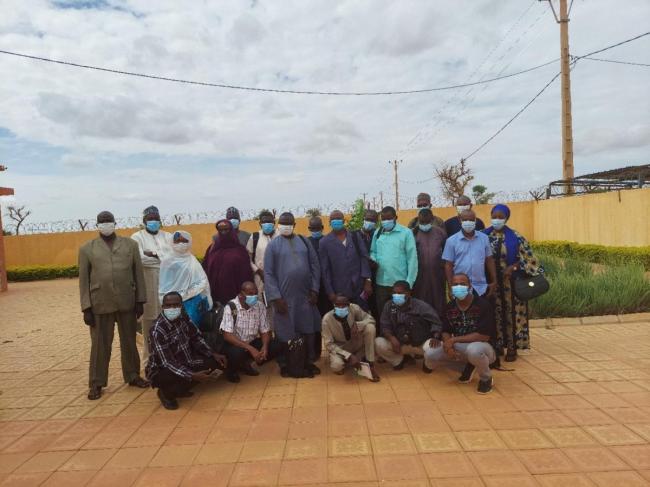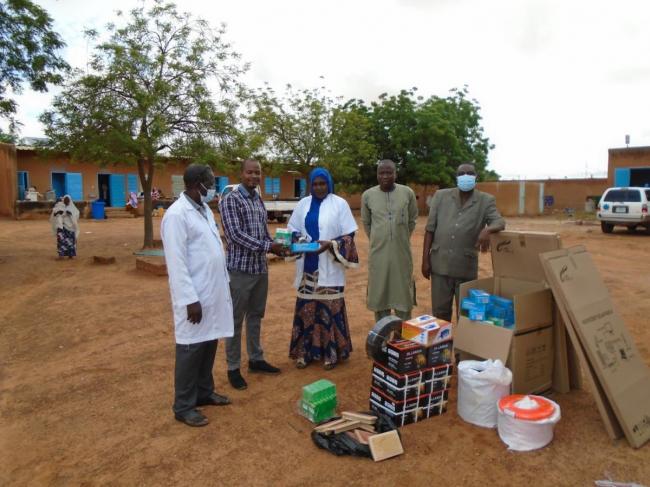Thanks to IRC's introduction of the WASH FIT tool, it will now be scaled up nationally in Niger
Published on: 29/11/2021
The Ministry of Public Health, Population and Social Affairs of Niger invited IRC to share its experience on the implementation of the WASH FIT tool during a workshop on scaling up this tool nationally. The workshop was held from September 6 to 8, 2021 in Niger and was attended by executives from the regional directorates of public health, executives from the regional directorates of water and sanitation and representatives of NGOs and members of the technical working group on WASH FIT (IRC, WHO, Save the Children, UNICEF and World Vision).

A strong mobilisation of health and WASH sector actors in Niger (Ph. Ismael Ousmane, 2021)
Since 2019, as part of its technical assistance to the communes of Makalondi and Torodi for the improvement of drinking water and sanitation services in health centres, IRC has been working with WASH FIT as it is the best tool for the intervention. It is a risk-based approach with a series of tools to improve water, sanitation, and hygiene services on an ongoing basis, as part of the broader goal of improving health care facilities. Recommended by the WHO Guidelines for Drinking Water Quality, it is the most effective way to ensure a continuous supply of safe water.
To kick off this process, IRC has developed, with the contribution of stakeholders, an action plan. The implementation of this plan started with the training of agents from twelve health facilities (one manager and two agents per health facility) in Makalondi and Torodi on biomedical waste management and environmental cleaning. The training was conducted by World Vision Niger, IRC's partner in the implementation process. This was followed by an evaluation of the health facilities, the identification and prioritisation of areas for improvement, and the electrification of nine health facilities. This has enabled these facilities to strengthen capacity of biomedical waste management and to increase the number of health facilities with a night light system from 40% to 100%.

Health workers and the management team of the Torodi district hospital receive equipment for night lighting of health facilities from IRC Niger (Ph. Ismael Ousmane, 2021)
These results are certainly visible in the field but deserve to be extended to all health facilities in Niger. Thanks to these developments the Nigerien authorities have decided to better address the issue by creating, on October 7, 2020, in collaboration with its partners (the World Health Organization and World Vision) a technical working group to address the issue of WASH services in all health facilities in Niger.
In June 2021, a training of trainers session on WASH FIT was conducted. The Ministry of Health then organised a national workshop to adapt the WASH FIT tool to the Niger context. IRC was invited to this workshop and shared the good practices and lessons learned with all health and WASH actors. The adapted tools will now serve as a basis for all health facilities implementing the process.
This process of the Nigerien government is perfectly in line with IRC's ambitions and represents a major step forward so that by 2030, most, if not all, health centres in Niger will have access to at least basic WASH services.
In addition, IRC will continue to implement the WASH FIT action plan in its two focus communities in Niger through, among other things, advocacy with parliamentarians and the Niger Water and Sanitation Journalists Network, updating the tool and popularising/developing a basic environmental clean-up protocol. "IRC remains available to the Ministry of Health to provide technical support and guidance for effective implementation of the process at the national level," said Ismael Ousmane, WASH officer at IRC Niger.